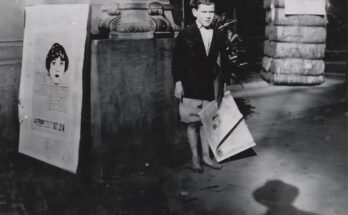Éva Weber was born on 31 May 1936 in Budapest, the capital of Hungary, into a Jewish family. Her parents, Sándor and Ilona Weber, were likely part of the Jewish community that had long contributed to Hungary’s cultural and economic life, despite facing discrimination. Hungary, before World War II, had a significant Jewish population, and Budapest was home to a thriving Jewish culture. Éva’s birth in this vibrant but increasingly threatened world placed her in the shadow of a dark and dangerous future.
During her early years, Éva’s family moved from Budapest to Szigetvár, a small town in southern Hungary. This relocation may have been due to family ties, employment, or the increasing instability in the capital as anti-Jewish laws and policies intensified. Szigetvár, like many towns in Hungary, had a small but established Jewish community. It was here that Éva likely spent most of her short life, playing, learning, and growing up under the watchful eyes of her parents, unaware of the looming horrors of the Holocaust.
By 1944, Éva was just shy of her eighth birthday when her life took a tragic turn. That year, following the German occupation of Hungary in March, the Nazi regime began the rapid deportation of Hungarian Jews. Within just a few months, hundreds of thousands were rounded up and sent to Auschwitz, the most infamous Nazi extermination camp. The speed and efficiency of this operation was brutal, and the Jewish community of Szigetvár was among those swept up in this final wave of deportations.
Éva, along with her parents and possibly other relatives or neighbors, was forced from her home and transported in overcrowded cattle cars. These journeys lasted days, without food, water, or sanitation. The psychological and physical torment endured by these victims, especially young children like Éva, is unimaginable. Upon arrival at Auschwitz, families were torn apart in the selection process. The elderly, the sick, and most children were immediately deemed unfit for labor and sent directly to the gas chambers.
Éva, being almost eight years old, was one of the children murdered shortly after arriving. She was likely separated from her parents and her final moments were spent among other terrified children, ushered into a gas chamber under the pretense of a shower. The use of Zyklon B gas by the Nazis ensured a swift but excruciating death. Éva’s short life ended in a place built solely for systematic murder, her final breath stolen by hatred and ideology.
The murder of Éva Weber is not just a personal tragedy; it is emblematic of the fate of over a million Jewish children who perished in the Holocaust. Her story reflects the widespread destruction of entire families, communities, and cultures. Auschwitz alone was the site of over one million deaths, and Hungarian Jews, deported in 1944, made up a large portion of its final victims. That Éva was killed so close to the end of the war only deepens the sorrow — had the war ended just months earlier, she might have survived.
Remembering Éva Weber is a solemn act of honoring all those who perished. Her name, preserved through historical records and memorials, represents the countless children whose lives were stolen before they could fully begin. By acknowledging her story, we ensure that the victims of the Holocaust are not reduced to statistics but are remembered as individuals with names, birthdays, and families. Éva was a daughter, perhaps a sister, a friend — and above all, a human being.
The story of Éva Weber calls us to reflect on the consequences of hatred, silence, and indifference. The Holocaust did not happen in a vacuum; it was enabled by widespread complicity and inaction. Today, as we face new forms of discrimination and violence in the world, Éva’s memory reminds us of our responsibility to speak out, to protect the vulnerable, and to ensure that such atrocities never happen again. Her life, though brief, must continue to teach and to inspire remembrance and vigilance for generations to come.


